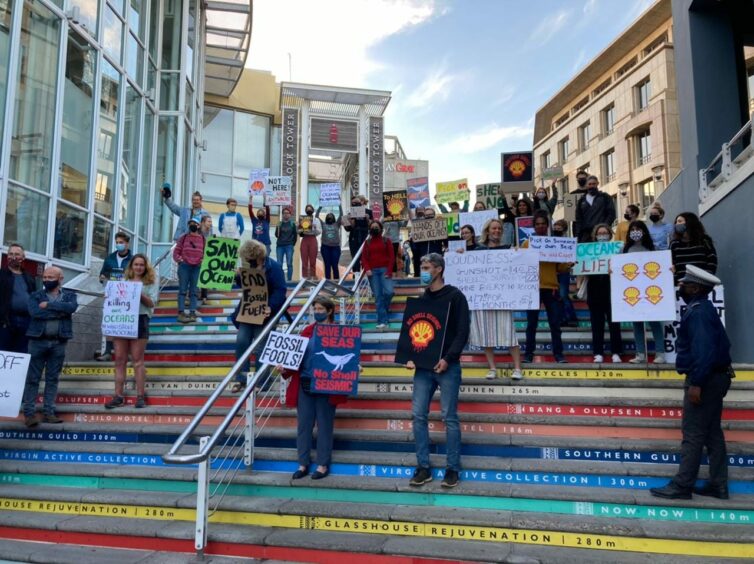
Angelika Hellweger of Rahman Ravelli assesses a case that has important implications for corporates conducting public consultations.
The High Court in the South African city of Makhanda has ruled, in a judgment delivered on September 1, 2022, that Shell’s right to conduct seismic surveys on South Africa’s Wild Coast was granted unlawfully. The court subsequently set aside the exploration right granted in 2014 and its two renewals in 2017 and 2021. This can be considered a landmark decision in protecting rural communities and the marine life.
The key point to be taken from this by other corporates, from a compliance perspective, is that Shell did not take the rights of communities seriously. There were grave flaws in the consultation process when informing local communities – that ultimately led to this decision. Corporates are well advised to pay particular attention to local customs and circumstances during the public consultation processes, in order to avoid massive financial losses.
The application
The case, which was filed by Sustaining the Wild Coast and eight other individuals and environmental activist groups (including Greenpeace), sought to review the decision by the Department of Mineral Resources and Energy from 2014. This granted an exploration right to Shell and Impact Africa, allowing them to conduct seismic surveys off the Wild Coast of South Africa, in pursuit of oil and gas.
In the application to review the decision, it was stated that the exploration right was granted unlawfully since there was no consultation with the affected communities, and that Shell’s consultations with traditional leaders were not sufficient.
It was also said that the decision-makers had failed to consider the potential harm to the livelihoods and cultural and spiritual rights of fisherfolk, as well as the climate impact of oil and gas exploration.
The applicants also said that decision-makers had failed to consider the Integrated Coastal Management Act, which mandates that the interests of the entire community must be considered. The court ruled in favour of the applicants on all the grounds of the review.
The ruling
The decision noted that neither Shell, nor Impact Africa or their respective consultants, conducted investigations to “unleash the identity of the communities” concerned. It also found the identification of interested parties was not a public process. Thus, the interested communities did not receive the necessary background information and were not consulted.
The first time exploration activities were brought to the public eye was on March 22, 2013, when an advert was placed in newspapers. The court noted that newspapers were out of reach for the Dwesa-Cwebe, Xolobeni, and Pondoland area communities. When people were finally able to gain access to newspapers, they were in English and Afrikaans, which was barely understood by the affected communities, who speak Xhosa.
On the issue of public participation, the court found that it was incorrect for consultations to only be conducted with kings, monarchs and other traditional leaders. The traditional leaders concerned had even urged the consultants to deal with members of the communities, but to no avail.
It was noted that such an approach “finds no space in a constitutional democracy” and further, that “a chief does not denote a community.” There is “no law, and none was pointed to, authorizing traditional authorities to represent their communities in consultations.”
The court went further, finding that “meaningful consultations consist not in the ticking of a checklist, but in engaging in a genuine, bona fide substantive two-way process aimed at achieving, as far as possible, consensus.”
In the decision, it was noted that there is “reasonable apprehension of harm to marine and bird life” and that “the measures proposed by Shell and Impact do not adequately manage the threat of harm”. The respondents’ measures did not address “the potential harm to the applicants and their religious or ancestral beliefs and practices”.
Much of the defence of the seismic surveys, both by Shell and the then Mineral Resources Minister, was about economic development and job creation.
However, no detail to substantiate these claims was made, and there was “no explanation as to how the jobs will be created, and how the economy will be stimulated, or how the seismic survey will improve the socio-economic circumstances”.
The court stated that “had the decision-maker had the benefit of considering a comprehensive assessment of the need and desirability of exploring new oil and gas reserves for climate change and the right to food perspective, the decision-maker may very well have concluded that the proposed exploration is neither needed nor desirable.”
The judgment added, “The applicant communities contend that they bear duties and obligations relating to the sea and other common resources like our lands and forests.”
In its concluding remarks, the court stated that it was “demonstrably clear that the decisions were not preceded by a fair procedure; the decision-maker failed to take relevant considerations into account and to comply with the relevant legal prescripts.”
Issues for corporates
The judgement shows clearly that severe flaws and inadequacies in the consulting of local communities can easily result in the loss of exploration rights and subsequent significant financial losses. It is also a textbook example of what the consequences are when companies do not take the consultation process seriously and when they do not consider cultural and local circumstances and customs.
There should be a recognition of the importance of the languages spoken by the respective local communities.
Information needs to be published in local – not national – newspapers in the local language or languages spoken by the majority of people in the relevant area. Consideration needs also to be given to the fact that information published on a website or distributed by email might not be sufficient, if the local communities lack access to computers or an internet connection.
Attention should also be paid to the fact that information should not only be distributed in writing, but also broadcast locally to ensure the information has a greater chance of reaching the affected communities. All possible ways that allow affected communities to understand planned activities need to be utilised.
Otherwise, a meaningful consultation will not be achieved.
As we have seen in other matters – and as noted in this judgment – a “tick box attitude and exercise” is not sufficient to achieve compliance. Corporates need to consider the underlying intent of the respective regulations in order to improve business processes to help minimise risk and safeguard the business.
Recommended for you

 © Supplied by Rahman Ravelli
© Supplied by Rahman Ravelli